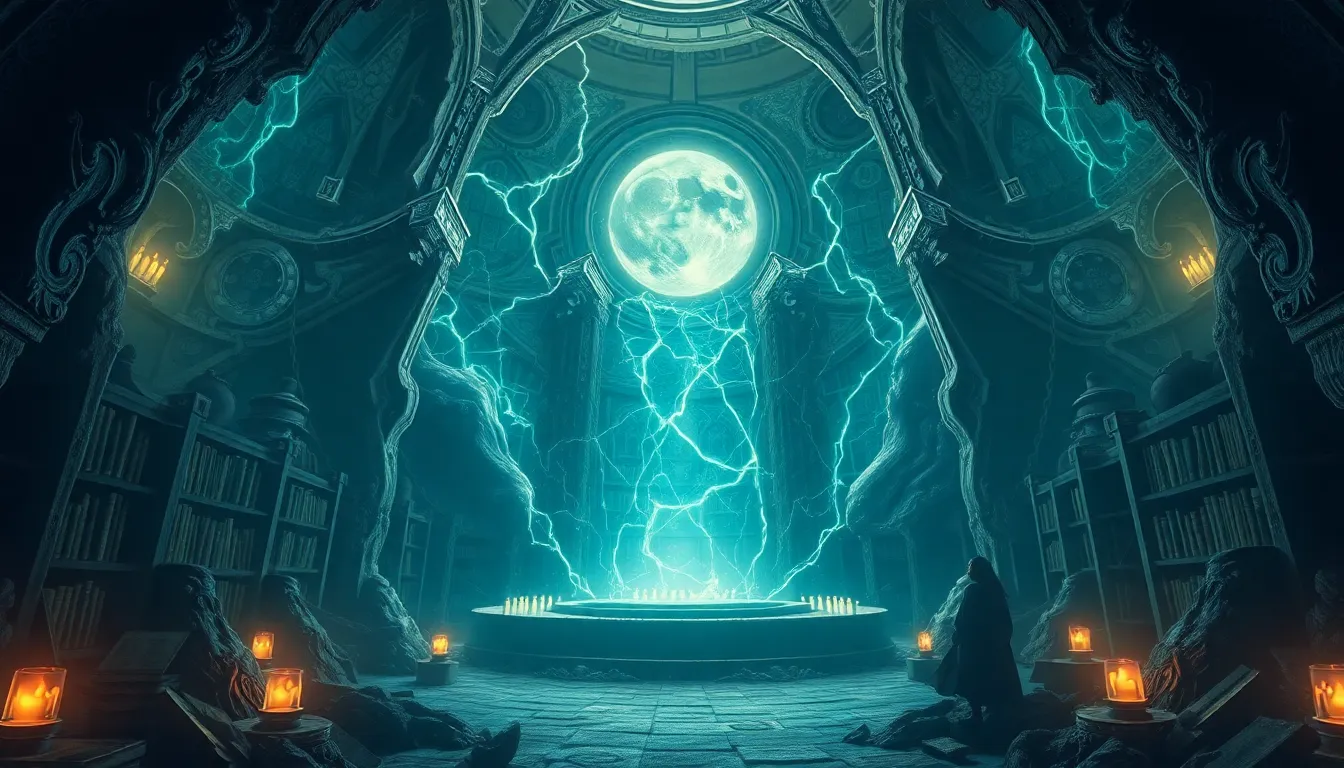The Quest for the Lost Library: Myths of Knowledge and Wisdom
Introduction: The Allure of Lost Libraries
The concept of lost libraries has captivated the human imagination throughout history. These repositories of knowledge symbolize the pursuit of wisdom and the preservation of culture. Libraries serve as a testament to humanity’s quest for understanding, housing the thoughts and ideas that shape civilizations. Among the most famous of these lost sanctuaries is the Library of Alexandria, a beacon of ancient knowledge that remains a powerful symbol of what has been lost over time.
Historical Context: Libraries of the Ancient World
In ancient times, libraries were more than just places to store books; they were vital centers of learning and culture. They played a pivotal role in society, influencing education, politics, and religion. Key examples of influential libraries include:
- The Library of Alexandria: Founded in the third century BCE, it was one of the largest and most significant libraries of the ancient world, housing countless scrolls and attracting scholars from various regions.
- The Library of Pergamum: Established in the ancient city of Pergamum, it rivaled Alexandria in size and was known for its extensive collection of parchment scrolls.
- The House of Wisdom in Baghdad: During the Islamic Golden Age, this institution became a hub for scholars, translating and preserving texts from various cultures.
These libraries not only preserved knowledge but also facilitated its dissemination, shaping the intellectual landscape for generations to come.
Legends and Myths: Stories of Lost Libraries
The allure of lost libraries is further enhanced by the myths and legends that surround them. These stories often reflect cultural values and the human desire for knowledge. Notable myths include:
- The Library of Alexandria: While its destruction is often romanticized, the true history is complex. Many scrolls were lost over time due to neglect and political turmoil, but some texts were also preserved through translations.
- The Library of the Lost City of Atlantis: According to legend, this lost civilization housed vast knowledge that perished with its sinking.
- The Library of the Maya: Myths suggest that ancient Mayan texts hold advanced astronomical and philosophical knowledge, much of which remains undiscovered.
These legends not only reflect the reverence for knowledge but also serve as cautionary tales about the fragility of human achievement.
The Symbolism of Libraries in Literature and Art
Lost libraries have inspired countless works of literature and art, serving as powerful symbols of the pursuit of knowledge. Notable examples include:
- Jorge Luis Borges’ “The Library of Babel”: This short story presents a universe filled with an infinite library containing all possible books, exploring themes of chaos, knowledge, and the search for meaning.
- Ray Bradbury’s “Fahrenheit 451”: In a dystopian future where books are banned, the preservation of knowledge becomes a radical act, emphasizing the importance of libraries as guardians of culture.
- Artistic representations: Countless paintings and sculptures depict libraries as sacred spaces, often imbued with a sense of mystery and reverence.
These cultural representations highlight the enduring significance of libraries and the universal quest for knowledge.
Modern Interpretations: The Search for Lost Knowledge
Today, the quest for lost libraries and hidden texts continues. Archaeological discoveries and technological advancements play a crucial role in uncovering lost knowledge. Notable efforts include:
- Excavations in the Middle East: Archaeologists have uncovered ancient texts and ruins, shedding light on civilizations that once thrived.
- The use of imaging technology: Techniques such as multispectral imaging are used to read faded texts, revealing lost works from antiquity.
- Digital libraries: Initiatives like the Internet Archive aim to preserve and digitize texts, ensuring access to knowledge for future generations.
These modern quests reflect the ongoing importance of libraries in the preservation of human thought.
The Philosophical Implications: What is Knowledge?
The myths of lost libraries provoke profound philosophical questions about the nature of knowledge and wisdom. They highlight the relationship between knowledge, power, and societal progress:
- Knowledge as power: Historically, access to knowledge has often dictated social hierarchies, where the elite controlled information.
- The preservation of knowledge: Philosophers argue that safeguarding knowledge is vital for societal growth and ethical progress.
- Knowledge in the digital age: In a world flooded with information, discerning valuable knowledge from noise becomes increasingly challenging.
These considerations underscore the importance of libraries as custodians of knowledge and wisdom.
The Digital Age: Libraries in the Information Era
The transition from physical libraries to digital platforms has transformed how we access and engage with knowledge. The internet has vastly expanded access to information, but it also raises questions about the future of libraries:
- Advantages of digital libraries: Increased accessibility, the ability to reach global audiences, and the potential to preserve texts in digital formats.
- Challenges: The risk of information overload, the potential for misinformation, and the question of what constitutes a “lost library” in the digital realm.
As we navigate this new landscape, the essence of libraries as centers of knowledge remains vital.
Preservation Efforts: Safeguarding Our Intellectual Heritage
Preserving our intellectual heritage is crucial in an age of rapid change. Various initiatives aim to protect libraries, texts, and knowledge:
- UNESCO initiatives: Organizations like UNESCO work to protect cultural heritage sites and promote literacy and education worldwide.
- Community libraries: Local efforts to establish and maintain libraries help ensure access to knowledge at the grassroots level.
- Digital preservation: Projects that digitize and archive texts help safeguard against the physical deterioration of materials.
These efforts face challenges, including funding, political obstacles, and the need for technology to keep pace with preservation efforts.
Future Prospects: Libraries and Knowledge in a Changing World
The future of libraries and knowledge is intertwined with technological advancements and societal changes. Predictions for the coming years include:
- Increased integration of technology: Libraries may become hybrid spaces that blend physical and digital experiences.
- Focus on community engagement: Libraries will likely emphasize their role as community hubs, fostering connections and collaboration.
- Continued advocacy for open access: The movement toward open access to information will shape how knowledge is shared and preserved.
As we move forward, the quest for knowledge remains as relevant as ever, reminding us of the importance of libraries in shaping our collective future.




